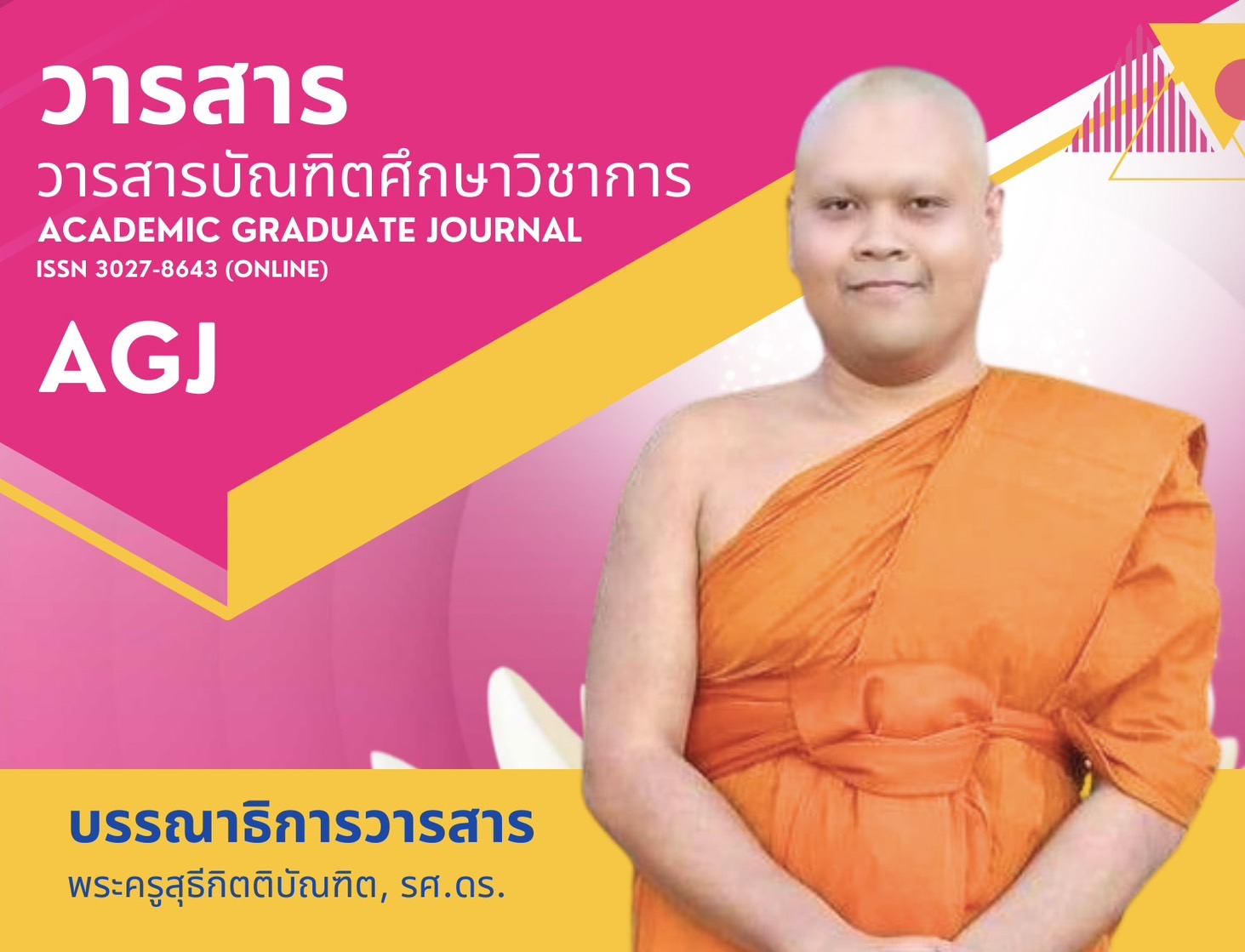DEMOCRATIC CITIZENSHIP: A DEVELOPMENT CASE STUDY OF THE FUTURE DIRECTION OF DEMOCRACY ACCORDING TO BUDDHIST PRINCIPLES
Keywords:
Citizenship, Democracy, Future DirectionAbstract
This academic article aims to study and analyse the concept of citizenship in a democratic system, focusing on developing future democratic directions based on Buddhist principles. The key issue addressed is the lack of understanding and correct practice among citizens in a democratic society, particularly regarding civic responsibility, respect for rights and freedoms, and peaceful cooperation. These challenges hinder the sustainable development of democracy. The study applies Buddhist principles, such as morality, patience, respect for others, and proper conduct as citizens, as the core framework for analysis. These principles align with democratic values, including respect for human dignity, respect for rights, freedoms, and fair societal rules, as well as responsibility towards oneself, others, and society. The analysis reveals twelve key aspects: promoting social justice, participation in elections and expressing opinions, being a responsible digital citizen, social accountability, respecting the majority while safeguarding minority rights, and enhancing educational capacities. These aspects empower citizens to govern themselves and engage effectively in democratic processes. The study highlights a Buddhist approach to developing citizens in a democratic system, which fosters just governance and peaceful coexistence within a democratic society.
References
กันตพจน์ เศรษฐารัศมี. (2565). วิถีประชาธิปไตยในสังคมไทยโดยใช้หลักธรรมของพระพุทธศาสนา. กรุงเทพฯ: สำนักงานศาลรัฐธรรมนูญ.
ชไมพร กิติ. (2564). การมีส่วนร่วมของประชาชนในระบอบประชาธิปไตยตามหลักธรรมาภิบาล. วารสารวิชาการสถาบันพัฒนาพระวิทยากร, 4(1), 47-58.
ฐานข้อมูลกองการต่างประเทศ. (2566). โครงการพัฒนาแห่งสหประชาชาติ (UNDP). สืบค้น 15 มกราคม 2567, จาก https://shorturl.asia/v6fGJ
ณัฏฐพล บุณยพิพัฒน์. (2562). ปัญหาและอุปสรรคในการพัฒนาระบอบประชาธิปไตยของไทย (พ.ศ. 2475-ปัจจุบัน): ข้อสังเกตในเชิงทฤษฎี. ขอนแก่น: มหาวิทยาลัยขอนแก่น.
ยุทธพร อิสรชัย. (2566). การออกเสียงประชามติ (Referendum). สืบค้น 2 สิงหาคม 2567, จาก https://shorturl.asia/rQdcs
รณชัย โตสมภาค. (2560). ประชาธิปไตย. สืบค้น 2 สิงหาคม 2567, จาก https://shorturl.asia/e1b7K
รัฐธรรมนูญแห่งราชอาณาจักรไทย เรื่อง หน้าที่ของปวงชนชาวไทย. (2560, 6 เมษายน). ราชกิจจานุเบกษา. เล่ม 134 ตอน 40 ก. หน้า 13.
วิชัย วงษ์ใหญ่. (2554). นวัตกรรมหลักสูตรและการเรียนรู้สู่ความเป็นพลเมือง. กรุงเทพฯ: บริษัท อาร์ แอนด์ ปริ้นท์ จํากัด.
สถาบันพระปกเกล้า. (2555). ความเป็นพลเมืองกับอนาคตประชาธิปไตยไทย (Citizenship and the Future of Thai Democracy). กรุงเทพฯ: สถาบันพระปกเกล้า.
_____. (2558). ความเป็นพลเมืองในระบอบประชาธิปไตย. กรุงเทพฯ: สำนักงานเลขาธิการสภาผู้แทนราษฎร.
สมชาย แสวงการ. (2558). สร้างความเป็นพลเมืองไทยในระบอบประชาธิปไตย. กรุงเทพฯ: สำนักงานศาลรัฐธรรมนูญ.
สำนักงานคณะกรรมการสิทธิมนุษยชนแห่งชาติ. (2558). คู่มือ การทำ ความเข้าใจ เรื่องสิทธิพลเมือง และ สิทธิทางการเมือง. กรุงเทพฯ: สำนักงานคณะกรรมการสิทธิมนุษยชนแห่งชาติ.
สำนักงานเลขาธิการสภาผู้แทนราษฎร. (2555). พลเมืองในระบอบประชาธิปไตย. กรุงเทพฯ: สำนักงานเลขาธิการสภาผู้แทนราษฎร.
_____. (2556). พื้นฐานความเป็นพลเมืองในระบอบประชาธิปไตย. กรุงเทพฯ: สำนักงานเลขาธิการสภาผู้แทนราษฎร.
_____. (2558). ความเป็นพลเมืองในระบอบประชาธิปไตย. กรุงเทพฯ: สำนักการพิมพ์ สำนักงานเลขาธิการสภาผู้แทนราษฎร.
Abowitz & Harnish. (2006). Contemporary Discourses of Citizenship. Review of Educational Research, 76(4), 653-690.







